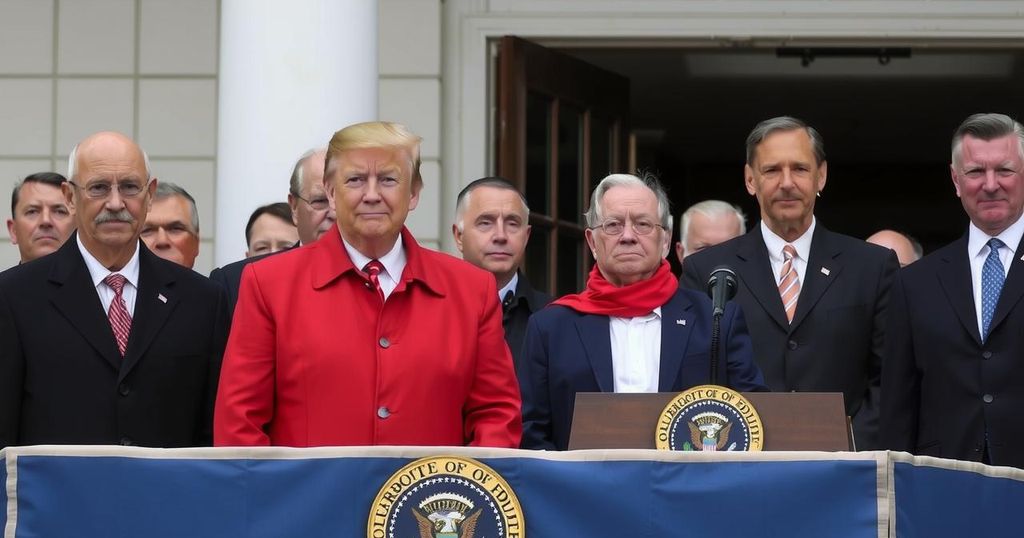Chinese President Xi Jinping is expected to decline the invitation to Donald Trump’s presidential inauguration on January 20. The Chinese ambassador will attend instead. This situation is historic, as no foreign leaders have previously been present at such events, highlighting the intricate U.S.-China relations amidst ongoing tensions regarding trade and security issues.
Chinese President Xi Jinping is anticipated to decline the invitation to attend the inauguration of President-elect Donald Trump on January 20, despite the invitation extended to him. Knowledgeable sources, as reported by CBS News, indicate that while the Chinese ambassador to the United States is expected to participate, no high-ranking officials from Beijing are likely to accompany him. Historically, this would mark an unprecedented situation, as there have been no foreign leaders present during U.S. presidential inaugurations, a fact emphasized by various diplomatic traditions since 1874.
The invitation has been perceived as an effort by President Trump to promote dialogue with global leaders, including those from rival nations. Trump’s spokeswoman, Karoline Leavitt, stated that this underscores the administration’s approach to engage with both allies and adversaries. Though Trump has occasionally lauded Xi, he has concurrently expressed strong criticisms and has announced plans to implement increased tariffs on imports from China, indicating a complex diplomatic relationship between the two powers.
Despite Trump’s attempts to reach out internationally post-election, including meetings with leaders from Canada, Argentina, and France, Xi’s absence from the inauguration signals a cautious approach from China amidst ongoing tensions. U.S. intelligence has recently highlighted security concerns regarding Chinese cyber activities affecting American telecommunications, further straining relations. Ambassadorial and diplomatic attendance at such events remains customary, however, Xi’s absence may reinforce existing geopolitical frictions between the nations.
The context surrounding the potential absence of Chinese President Xi Jinping from Donald Trump’s inauguration is rooted in the complex diplomatic relationship between the United States and China. Historically, presidential inaugurations have not seen the attendance of foreign leaders, marking an unusual occurrence should Xi choose not to attend. The invitation reflects Trump’s inclination to foster open dialogue with a variety of global leaders, notwithstanding the prevailing criticisms of China amidst rising tariffs and security concerns following cyber infiltration by Chinese entities. Understanding the backdrop of these tensions is crucial for comprehending the implications of such diplomatic decisions.
The likelihood of President Xi Jinping’s non-attendance at Donald Trump’s inauguration highlights the intricacies of U.S.-China relations. With the invitation marking a rare diplomatic overture, its potential rejection reinforces the challenges both nations face amid escalating tensions surrounding trade, cyber security, and global diplomacy. The decision not to partake in a traditionally symbolic event further signifies the cautious dynamics at play between the two global powers moving forward.
Original Source: www.bbc.com






